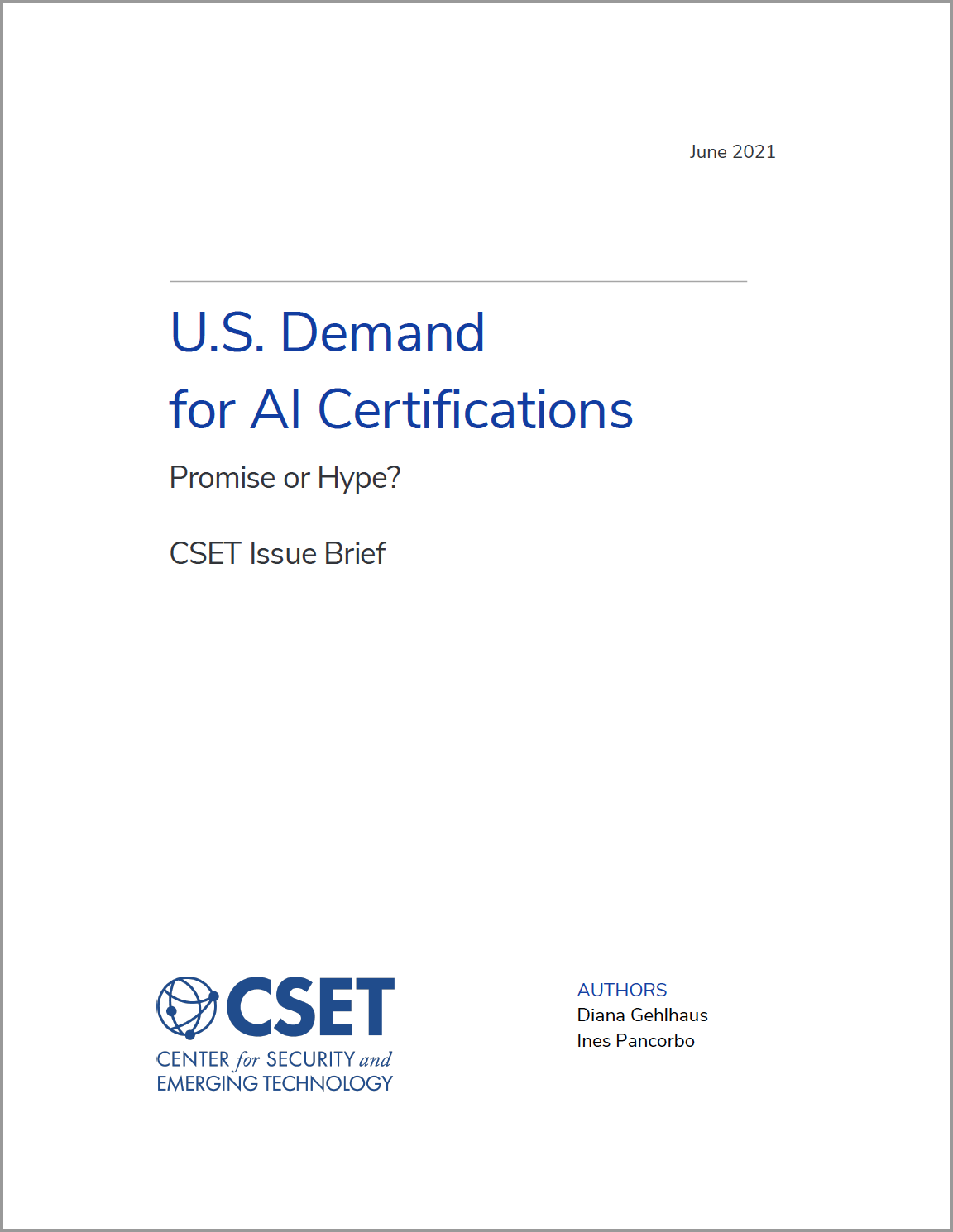Executive Summary
The promise of artificial intelligence and AI-related certifications has been widely touted as an alternative pathway to entering the AI workforce. Companies including Amazon, Google, and Microsoft have all created certification programs dedicated to AI and AIrelated competencies, stating they would accept these credentials for their own positions.
Less clear, however, is whether the increased discussion about certifications as a workforce pathway is having a measurable impact. Data from related CSET research suggests the majority of AI workers have at least a four-year college degree. Moreover, little data is available on how many people complete these certifications and any associated labor market outcomes.
This brief explores the question of whether AI and related certifications create more promise or hype as a pathway to entry in the AI workforce. We address this question from the perspective of job postings, to explore if employers hiring for AI roles are asking for these certifications, particularly in lieu of college degrees.
We find that according to U.S. AI occupation job postings data over 2010–2020:
- There is little demand from employers for AI and AI-related certifications.
- Most AI or related certifications in demand are not explicitly AI, such as information technology (IT) certifications from Microsoft and state-mandated engineering licenses.
- Many “big tech” companies engaged in AI—several of whom market their own AI certifications—are largely not using these certifications to qualify potential applicants for AI jobs.
- Project management certifications offer an example of how certifications can be a more widely accepted entry-level credential for AI occupations.
The implication is that there is still a long road ahead to certifications becoming an accepted alternative pathway or entry point into AI jobs. This analysis suggests those obtaining AI and AI-related certifications are likely already employed in related jobs, and it is likely that the biggest value of these certifications is as a complement to a four-year degree and on-the-job work experience.
From this perspective, such certifications appear to be more hype than promise when it comes to being an alternative pathway to AI jobs. Creating industry-accepted standards or accrediting AI certification programs similar to colleges and university degree programs could be an important step forward in this regard.
